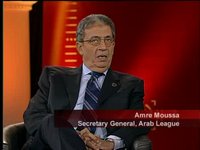Doha Debate Special Event: Amre Moussa
Sunday October 29 2006
Transcript
Order of speeches
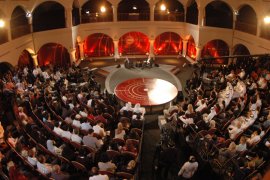
- Darfur
- Democracy in the Middle East
- Student questions - Lebanon
- Iraq
- Arab-Israeli dispute
- Arab reform
- Somalia
- Iran
- Personal achievements
Darfur
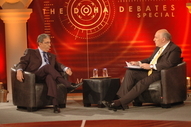 TIM SEBASTIAN
TIM SEBASTIAN
Ladies and gentlemen, a very good evening to you and welcome to this Doha Debate Special Event sponsored by the Qatar Foundation and coming to you from the Gulf State of Qatar itself. The Arab League is said by its critics to offer much and deliver little, but there can surely have been few times as testing as these for the 22 Arab states that make up the group. In recent months its members have seen conflict in Lebanon, a sharp increase in violence in Iraq, mass killing and displacement in Sudan, violence between Hamas and Fatah in the Palestinian territories, and continuing tension between Sunni and Shia. All this lands up on the desk of our guest tonight, the Secretary General of the Arab League, Mr. Amre Moussa. A very warm welcome to you.
AMRE MOUSSA
Thank you.
TIM SEBASTIAN
Are you getting much sleep these days?
AMRE MOUSSA
Quite a little.
TIM SEBASTIAN
It's Arab disunity that's keeping you awake, isn't it? It's got to the stage where even almost half your members don't even turn up to your summits these days, do they?
AMRE MOUSSA
No, that's not true.
TIM SEBASTIAN
Nine out of 22 didn't arrive in Khartoum, did they?
AMRE MOUSSA
It's not exactly so. The Arab summits are well attended and ...
TIM SEBASTIAN
No, but this is fact. Nine out of 22 did not come. Leaders of Egypt, your own country ...
AMRE MOUSSA
It is not a question of fact.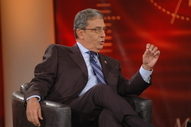 TIM SEBASTIAN
TIM SEBASTIAN
It is a question of fact. Either they turn up or they don't.
AMRE MOUSSA
It's a question of the readiness, the other commitments, but the summits do take place, consider major questions and adopt fairly important resolutions to be implemented.
TIM SEBASTIAN
But you've spent a lot of time on the phone trying to get these leaders to come to your last summit.
AMRE MOUSSA
Not on the phone. We get together and we see what we can do and the problems are too many, and you have forgot one, by the way, you forgot Somalia, which is also a major problem that we are facing.
TIM SEBASTIAN
Have you forgotten Somalia?
AMRE MOUSSA
No, not at all, neither Somalia nor Sudan nor Iraq nor Palestine, the Arab/Israeli conflict, the nuclear situation in the region. It is a tall agenda indeed that we have.
TIM SEBASTIAN
Well, the accusation is that you have forgotten Sudan over many years and you did go to your summit in March and barely raised the question of the grave human rights violations that have been taking place.
AMRE MOUSSA
Where does it come from, this accusation, where does it come from?
TIM SEBASTIAN
From NGOs, from governments, from Human Rights Watch, from all kinds of people. You know perfectly well.
AMRE MOUSSA
We are not perfect, but all regional and international organisations face problems, major problems, but we in the Middle East and in the Arab world have a special agenda.
TIM SEBASTIAN
This is killing on a mass scale in one of your member countries. This is killing on a mass scale.
AMRE MOUSSA
Mass killing in more than one, yes, more than one.
TIM SEBASTIAN
Yes, well, what about this one? Let's just deal with this one for the moment.
AMRE MOUSSA
In more than one. We have Somalia, we have Sudan, we have what goes on in Iraq too.
TIM SEBASTIAN
But let's just deal with this one at the moment, Sudan, Darfur.
AMRE MOUSSA
Darfur is a major problem that we are facing, not only us, the Arab world, but also Africa, but the situation in Darfur is a situation of major conditions of human rights, but it is not a situation of genocide nor ethnic cleansing.
TIM SEBASTIAN
It doesn't matter whether it looks like major human rights violations or war crimes.
AMRE MOUSSA
No, no, that makes a big difference.
TIM SEBASTIAN
Why? People are dying in terrible circumstances.
AMRE MOUSSA
Violations of human rights take place in so many countries and in so many places and in so many continents ....
TIM SEBASTIAN
And who's to blame?
AMRE MOUSSA
... but the question ...
TIM SEBASTIAN
And who's to blame?
AMRE MOUSSA
... the accusation about genocide or ethnic cleansing is really devoid of ...
TIM SEBASTIAN
Look, we didn't raise the accusation, so you don't need to knock it down because we didn't raise it. Please address the issue that I did raise, which is mass killing and rape which is going on, and grave human rights violations under the watch of the Sudanese government.
AMRE MOUSSA
No, no, no, it is not about mass killing as you are putting it. It's not a mass killing, but a major confrontation between tribes that goes on since hundreds of years ...
TIM SEBASTIAN
Back to 2000.
AMRE MOUSSA
... and it has gone too far, I agree ...
TIM SEBASTIAN
You approve of the action of the Sudanese government.
AMRE MOUSSA
... and that's why we are trying to deal with the Darfur situation, not only the Arab League but the Arab League, the African Union and the United Nations, three major organisations that have determined ...
TIM SEBASTIAN
But Mr. Moussa, you're not dealing with it. You're not dealing with it. The killing goes on.
AMRE MOUSSA
No, no, no, we are dealing with it, we are dealing with it, and I hope that you just read the information and the true information, not the fabricated ones or the exaggerated ones, the situation is bad in Darfur, it's bad, and that's what we are trying to deal with.
TIM SEBASTIAN
Why, by letting the Sudanese government off the hook?
AMRE MOUSSA
No, no, no, no. You are ignoring that we have reached a deal and a peace agreement in Abuja.
TIM SEBASTIAN
What is the deal, what deal?
AMRE MOUSSA
The deal in Abuja was to get peace-keeping forces ...
TIM SEBASTIAN
It hasn't stopped the fighting.
AMRE MOUSSA
... but also a reconciliation conference in Darfur, and also compensation, inclusion and the change of the system of government that brings in the Darfur ...
TIM SEBASTIAN
It hasn't stopped the fighting and the killing.
AMRE MOUSSA
... to Khartoum which they haven't done so far.
TIM SEBASTIAN
So what's the point of all this empty talk which leads nowhere?
AMRE MOUSSA
It has led already ...
TIM SEBASTIAN
What to? The fighting hasn't stopped.
AMRE MOUSSA
The fighting is still there but the forces are trying to stop it, and the fighting is not only from one side, but all sides. We are trying to do that, we are trying to stop this fighting.
TIM SEBASTIAN
So why are you failing so spectacularly?
AMRE MOUSSA
We need the help, not the exaggeration and accusations and things that make things more difficult.
TIM SEBASTIAN
Back in 2004, even two years ago, you were accused by 34 Arab NGOs of failing in your obligation at the Tunis summit. They said, 'The summit ignored the wide-ranging killings going on in the Darfur region and the grave violation of human rights and international law, this despite the report of an Arab League fact-finding mission that confirmed serious human rights violations in Darfur by the local Sudanese administration,' the local Sudanese administration. You have consistently let the Sudanese administration either at the local level and the government level off the hook.
AMRE MOUSSA
No, no, no, you are putting that wrongly. We have not allowed that, we have not helped that. We try to deal with that.
TIM SEBASTIAN
You turned up to have a summit in Khartoum without even mentioning it.
AMRE MOUSSA
No, no, no, we have mentioned that and the Arab countries have committed themselves to pay a certain amount of money to help the peace-keeping forces in Darfur. This is a resolution that is being implemented today.
TIM SEBASTIAN
You offered a peace-keeping force for Darfur which they turned down in Sudan.
AMRE MOUSSA
No, they haven't.
TIM SEBASTIAN
They have turned it down.
AMRE MOUSSA
No, no, no, no. There is a peace-keeping force over there. It is not enough.
TIM SEBASTIAN
You offered an Arab League peace-keeping force, didn't you?
AMRE MOUSSA
Where did you bring this information from?
TIM SEBASTIAN
From The Gulf Times.
AMRE MOUSSA
No, no, no. The Arab League has decided to co-operate with the African Union, and not to have an Arab independent policy on that, but a joint policy of African and Arab organisations. The force over there which is around 7,000 troops need to be 15,000 to 20,000, all Africans as the government of Sudan insists and we believe that there is a way to do it, that to increase the number of troops, have a deal or an agreement with the United Nations, with the presence of UN, certain logistics and observers, training and ...
TIM SEBASTIAN
But it's not going anywhere. It's talking, talking about a deal and the fighting and the killing goes on. That is the only test of yours.
AMRE MOUSSA
The fighting and the killing goes on, therefore the problem is still there, that is what we are trying to deal with.
TIM SEBASTIAN
Because you're failing to stop them and you're letting the Sudanese government off the hook time and time and time again.
AMRE MOUSSA
No, no, no. Again you depend in your information on whatever is being said and promoted in certain circles. The situation is bad, that's right. We are trying to deal with, that's right. There is an African/Arab joint policy, that's right. We depend on the United Nations, that's right. What we are trying to do now, in consultations with Kofi Annan and with President Bashir and myself, President Konare of AU to reach an agreement on the increase of the peace-keeping forces to invite more African countries and Arab countries to contribute troops and money, so what do you want?
TIM SEBASTIAN
Mr. Moussa, you know perfectly well, you don't need a peace-keeping force if the Sudanese government would stop arming and directing the Janjaweed militia who are doing the killing. You know now that as well as I do. That is the fact, isn't it?
AMRE MOUSSA
No, that's not a fact.
TIM SEBASTIAN
That's a fact. You know perfectly well that the Sudanese government could stop the killing tomorrow ...
AMRE MOUSSA
Again, I don't want you to take me wrong. The situation is bad, we are trying our best, but there are mistakes on all sides, on all sides, and also there is a rush to get resolutions.
TIM SEBASTIAN
It's easy to say there are mistakes on all sides. You know who's to blame.
AMRE MOUSSA
No, I believe that we have to blame all sides, not only one side.
TIM SEBASTIAN
Well, that's easy, isn't it?
AMRE MOUSSA
And that is the difference between you in the West, and what we believe. You want to blame one side.
TIM SEBASTIAN
That is the reason you have mass killing in countries and we don't.
AMRE MOUSSA
We want this side to stop the war and the other side to stop creating problems and the accusations and the killing, the confrontation, the bloodshed comes from all directions, not only one.
TIM SEBASTIAN
How can you as an organisation ever have any influence in the outside world when you have killing on this scale taking place in one of your member countries?
AMRE MOUSSA
We have killing that's taking place in Iraq and in Sudan and in Somalia. Those are the problems that we are facing, but we cannot deal with it by pointing a finger of accusation on one side because so many sides are implicated in all those problems, not only one, not only one.
TIM SEBASTIAN
The inability to point a finger means that everybody gets away with it, that's what it means, doesn't it?
AMRE MOUSSA
No, not everybody gets away with it.
TIM SEBASTIAN
They do it year after year after year.
AMRE MOUSSA
We are not going to allow that to happen. We are trying to do that and there is a time limit. We are trying to get a resolution, reach a deal, before the end of this year, in November or December, but that's it because we are trying to establish that force as quickly as we can in order to be in place by 1st January. We are not perpetuating a problem, we are dealing with the problem.
Democracy in the Middle East
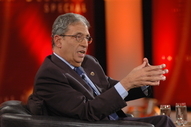 TIM SEBASTIAN
TIM SEBASTIAN
As you are trying to establish democracy and human rights in the Arab world, or not? Have you given up on that project?
AMRE MOUSSA
We haven't given up on that project. Perhaps some forces have given up on that process, but we, in our interest I believe, it is our interest to establish democracy in the Middle East.
TIM SEBASTIAN
Where is there democracy in the Middle East? Where is there?
AMRE MOUSSA
Look, democracy is not an event, it's a process.
TIM SEBASTIAN
Where is it? Where can you see anything that you would characterise as democracy in the Middle East?
AMRE MOUSSA
I'll tell you. I don't look at it the way you look at it, not only you but many of your colleagues too. Since democracy is a process ...
TIM SEBASTIAN
We'll call it human rights then.
AMRE MOUSSA
Get back to the Tunis summit, where a major document about change and modernisation in the Arab world has been adopted.
TIM SEBASTIAN
Oh, there's no shortage of documents.
AMRE MOUSSA
Just a minute Tim.
TIM SEBASTIAN
I never said there was a shortage of documents, there's a shortage of action.
AMRE MOUSSA
No, no, there's no shortage of action. It is a slow pace, I agree, and we have to accelerate the pace of democracy, accelerate the pace of change, accelerate the pace of modernisation more than what we are doing now.
TIM SEBASTIAN
How about in your country, Egypt? How about starting there?
AMRE MOUSSA
It has started, and it started not only in Egypt but in many other countries.
TIM SEBASTIAN
With the crackdown on the Muslim Brotherhood, with the beating up of demonstrators in the streets?
AMRE MOUSSA
I agree that it is slow, but we are moving in the right direction, and democracy is something that we believe, we in our area and in our region, in our world, we believe that this is a best system.
TIM SEBASTIAN
It's moving in the right direction where the police are beating up unarmed demonstrators in the streets?
AMRE MOUSSA
Look, the question of police, I cannot defend any actions like that, but what I am telling you is that the summit in Tunis has issued this major document and it is being implemented slowly I agree, I really complain that it is a slow motion. We need to be more active and to move on at a quicker pace, but the process has started. It is not because a certain power, outside power or a super-power, wants democracy or talk about democracy at a certain point, but because it is in our best interest to achieve democracy. Democracy is a process, it will take time. The sooner, the better. The quicker, the better, but it is our interest and I say that again because we have to do it, and we have to change our societies and to be ready to link up with the 21st century and contribute to it. We cannot do that without this reform that we are talking about.
Student questions - Lebanon
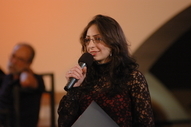 TIM SEBASTIAN
TIM SEBASTIAN
All right. Mr. Moussa, I'm going to lead you to the lions who are waiting for you out in the audience, and our first question is from Lubna Kayyali.
AUDIENCE Q (F)
Good evening. My question mainly is about the Arab League's efficiency. There is a view generally that the Arab League's reaction to the crisis in Lebanon and Iraq has been inefficient and limited. Do you think, sir, it's a problem with the structure of the Arab League itself or the unwillingness of its member states to co-operate with each other?
AMRE MOUSSA
No, I believe that we have done our best in both cases, in both situations, in Lebanon and in Iraq. Let me tell you about what we have done in Lebanon. First, the Arab League has called for a meeting to take place in Beirut itself while war was still on, and decided over there that an Arab committee should take the responsibility and go to New York and negotiate on behalf of Lebanon, on a resolution that has become Resolution 1701. This committee has gone to New York and really negotiated and for the first time I saw teamwork, fine teamwork, the Arab League delegation in contact with Siniora, Prime Minister Siniora, and the speaker of the Lebanese parliament, Nabih Berri, and the foreign minister and other leaders, negotiating with the five permanent members and then with the 15 members of the Security Council, and going through the draft resolution paragraph by paragraph ...
TIM SEBASTIAN
With a view to achieving what?
AMRE MOUSSA
Achieving a reasonable resolution that we can accept, we can live with and they can live with, and not to have a resolution along the same lines that this is a draft resolution, you go and vote for it. We said no, from the first minute we met with the Secretary General and the five permanent members, we said, 'Look, if you want a resolution that we are not going to accept, that 22 Arab countries are going to oppose, you can have it, but if you want a resolution that we will be on board and everybody will be on board, so let us negotiate.'
TIM SEBASTIAN
All right. Are you happy with that?
AMRE MOUSSA
I haven't completed because this is not only Lebanon, she asked about Iraq too. On Lebanon we got resolutions 1701 that has been implemented immediately and we withdrawal took place. Until now it is not complete, but a major withdrawal indeed took place and the Lebanese Army moved into the south in addition to the UNIFIL being beefed up and now in place, so this is the work, the joint work by the Arab League, the government of Lebanon and negotiations with the members of the Security Council.
TIM SEBASTIAN
But Hezbollah has not disarmed, has it.
AMRE MOUSSA
The Arab League has done a good job in Lebanon and ask the Lebanese, they feel it. They feel that it was the Arab League that saved the situation in the Security Council.
TIM SEBASTIAN
Mr. Moussa, Hezbollah has not disarmed, as required to do.
AMRE MOUSSA
Again, this is a process for the Lebanese to do it and I believe that ...
TIM SEBASTIAN
If you support Resolution 1701, it's contained in there.
AMRE MOUSSA
It's not contained in there. In fact it is contained in another resolution that has to be implemented also.
TIM SEBASTIAN
But 1701 refers to that.
AMRE MOUSSA
Yes, it does. The dialogue that has been called for by the speaker of the house, which will take place next week, will deal with all issues pertaining to Resolution 1701, but withdrawal hasn't taken place either, it's not full withdrawal so far until this moment.
TIM SEBASTIAN
All right, Lubna Kayyali, quickly.
AMRE MOUSSA
Again, Iraq.
TIM SEBASTIAN
Please let her just come back. We've got lots of questions on Iraq. Please.
AUDIENCE Q (F)
Well, sir, I do agree with you, of course, but I mean, wouldn't you argue that Arab states generally are very good with verbal advertisements, like we saw a lot of advertisements on NBC and other commercial channels about how to help Lebanese by supplying them with money, with other things, but let's say, collective action on the international level by the Arab states, we didn't see that, and I think as a normal Arab citizen, I think that this is the function or the goal of the Arab League, isn't it, to perform or to promote certain action when facing crisis?
AMRE MOUSSA
I must agree with you that we are not perfect. We could have done better, but in fact we have done all what we could under the circumstances. The Arab League with its political and its economic and social sides, have done a lot and are doing a lot, trying to co-ordinate the assistance, you know, to Lebanon, trying to mobilise all Arab organisations, NGO's and government, inter-government and the banks and funds. We have done that and we are doing that. In fact the Arab League is doing a lot in the question of Lebanon on all sides, and I believe that according to what I have been told, that the Lebanese government and the Lebanese leadership is very much satisfied with the performance of the Arab League. I would have loved to be much quicker, on a larger scale, but what we have done is quite good for the Arab League to perform that way after a lot of years of inaction.
TIM SEBASTIAN
OK, a question please from Najwan Borshid.
AUDIENCE Q (F)
Good evening. Hezbollah is very important. I want to know are you with or against Hezbollah?
AMRE MOUSSA
Why should I be with or against? The Hezbollah is one of the major organisations, parties, that form the Lebanese political body. The Hezbollah is part of Lebanon and we have to deal with Hezbollah as a reality, so I cannot say that I am with or against. Hezbollah is a party that we have to deal with in rebuilding Lebanon, reconstructing Lebanon, and maintaining, protecting, keeping, respecting the sovereignty and authority and integrity of Lebanon, but I don't think that the question is pertinent that I have to say for or against. For Lebanon and for the progress in Lebanon, and to respect the sovereignty of Lebanon and to move on in Lebanon, but also don't forget that there is a case of foreign occupation around Lebanon and part of Lebanon too, which dictates, which leads to certain situations, certain policies, sometimes rough policies.
TIM SEBASTIAN
Perhaps let's put the question in another way. Are you for or against an organisation that is funded by Iran, armed by Iran, and acts unilaterally without reference to the sovereign government of Lebanon?
AMRE MOUSSA
I am certainly for Lebanon and the Lebanese sovereignty over all their opponents.
TIM SEBASTIAN
You didn't answer my question.
AMRE MOUSSA
No, no, I am not in favour of any foreign agenda that would affect the Lebanese sovereignty or the Lebanese ...
TIM SEBASTIAN
But you have no qualms about Hezbollah being funded and armed by Iran, no qualms at all?
AMRE MOUSSA
It's not a question of no qualms. I said that any policy that would lead to the destruction of stability in Lebanon or threatening the social and the political fabric of Lebanon, we will be against, there is no question about that. We should not allow any different or foreign agenda to have its effects in Lebanon itself, but I don't have to make accusations easily as you are doing.
TIM SEBASTIAN
Youssef Francis, a question from you please. 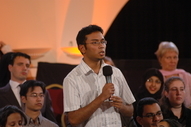 AUDIENCE Q (M)
AUDIENCE Q (M)
Good evening. Assume a situation like Lebanon happens again. Would the Arab League be prepared to recommend military action to its members?
TIM SEBASTIAN
Military action to defend the country.
AMRE MOUSSA
Oh yes, of course, if the need arises, we would do that, but we hope that no other situation would arise the same as the one in Lebanon, but we will have to promote a peace-keeping policy in the Arab League and we have to promote a position taken by the collective Arab will to defend any threat to the sovereignty or to the integrity of any of its members. I believe you are right and we have to promote such a policy.
AUDIENCE Q (M)
Why was there no military action the first time? The first time it happened, why was there no military action?
AMRE MOUSSA
The policy was to stop the military action, not to add to the military action. We wanted a ceasefire, immediate ceasefire. We wanted immediate withdrawal by Israel. We wanted Israel to stop the destruction of Lebanon and we called on the United Nations and we followed that policy which we believed it was the right policy for that problem under the circumstances prevailing at that time.
Iraq
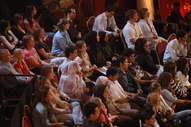 TIM SEBASTIAN
TIM SEBASTIAN
All right. We're going to move on to Iraq now. Question please from Maha Abdeen.
AUDIENCE Q (F)
Good evening. My question is, why do you think that Sunnis and Shia in Iraq are killing each other and still fighting, and what can your organisation do about it?
AMRE MOUSSA
This is the worst thing that has happened to us in the recent months or years, the wedge that has been driven between Shia and Sunni in Iraq. We're all Muslims and I don't think that such a sectarian war, sectarian confrontation, would be in the interest of Iraq or any other Arab or Muslim society. This is a situation that has been promoted by ill-wills and by a lot of conspiracies in order to partition Iraq, to divide Iraq, to threaten Iraq perhaps for so many years, their territorial integrity, their independence, even the unity of Iraq, so all of us, you, us, everybody in the Arab world, in the Muslim world, will have to stand firm and reject this notion, this policy, this conspiracy that divides Shia and Sunni, and whoever is promoting this or defending even one of the factions will end up by destroying Iraq and the immediate neighbourhood of Iraq and the fabric of this region. So this is the most sinister policy that has been applied in Iraq and it is indeed something that has to come to an end. That's why we, the Arab League, called from the very first beginning, in 2003, that the problem is the relationship between the components of the Iraqi society, and we have to start by efforts to reconciliate. A reconciliation process is a must. That is why we called for a meeting in the Arab League and each and every Iraqi high official attended that meeting. That day there were 1000 Iraqi leaders in Cairo. 100 of them were in the Arab League, with the President of Iraq, the Prime Minister, the ministers, the leaders of Sunni, the leaders of Shia, the leaders of Kurd, the leaders of Turkoman, all of them were there.
TIM SEBASTIAN
But Mr. Moussa, doesn't it matter more that a thousand people a week are dying rather than the thousand people who come to one of your meetings?
AMRE MOUSSA
You blame somebody else on that.
TIM SEBASTIAN
That's easy.
AMRE MOUSSA
Do it. If it is easy, do it.
TIM SEBASTIAN
But it does matter, doesn't it. It does matter more.
AMRE MOUSSA
Why don't you blame those forces that have led Iraq to this situation?
TIM SEBASTIAN
Who's led Iraq to that situation?
AMRE MOUSSA
Tell me, I'm asking you.
TIM SEBASTIAN
No. You tell me. You mentioned those forces leading Iraq. Who's led Iraq to that situation?
AMRE MOUSSA
So many sinister forces have led Iraq to this situation. First of all, policies that are really not well researched or planned. They took it easy. Iraq will just welcome everybody that would come and put an end to the previous regime.
TIM SEBASTIAN
You can name names here.
AMRE MOUSSA
I don't think that we have to name names, but if I wanted, I would name it, I would name it. Now in Iraq we have a problem of the disintegration of the country, and to prevent this disintegration, the Arab world, European world, the United States, the United Nations, will have all to come together to help each other and to help Iraq. Iraq is on the verge of disintegration. It will not help it to accuse each other and continue to accuse each other, 'You did it,' and you say, 'You did it.' It is not that question now. Now, how to defend Iraq, how to prevent a disintegration of Iraq? We need the United Nations, we need Europe, we need the Arab world and its collective will. We need the United States too.
TIM SEBASTIAN
Okay. Question from Christina Dur please.
AUDIENCE Q (F)
Good evening. Where was the Arab League when Saddam Hussein was oppressing his own people in Iraq?
AMRE MOUSSA
A good question, a good question. Indeed, we should have done more and we should have stood firm against any major violations of human rights as had happened at that time. Yes, I agree that the Arab League should have acted much earlier.
AUDIENCE Q (F)
Thank you.
Arab-Israeli dispute
TIM SEBASTIAN
Let's move on, if we may, to the Arab/Israel dispute now and Omar Basha, a question from you please.
AUDIENCE Q (M)
Good evening. Since Israel's not something that's going to disappear off the map, how does the Arab League perceive future relations between Arab countries and Israel? Do you have any plans to resolve the situation or perhaps are you waiting for the situation to resolve itself?
AMRE MOUSSA
Well, the Arab world and the Arab League have come to adopt a collective policy, as expressed by the Arab summit in Beirut in 2002, adopting the Arab initiative for peace in the Middle East. The Arab initiative for peace in the Middle East is a very important and basic document, and I believe it will not go away. It is the position that all the Arab countries have decided to take in relation to the Arab/Israeli conflict and in particular the Palestinian question. This document says the following: 'We are ready to have peace with Israel,' normalisation of Israel and offer recognition of Israel, if Israel also carries its obligations according to the Security Council resolutions and the principle of land for peace, withdraws from the occupied territories, agrees to the establishment of a viable Palestinian state, and I said withdraw from all Arab territories, I must say not only Palestinian but also Syrian and Lebanese, in addition to the establishment of a Palestinian state, and a just solution of the refugees' problem, and the Jerusalem question. We are ready, we are ready to establish peace, provided that Israel withdraws and the question of Jerusalem is resolved and the question of the refugees being negotiated. This is the essence of any peace.
TIM SEBASTIAN
But hasn't Hamas rejected that?
AMRE MOUSSA
I don't think there will be any peace without those conditions being met.
TIM SEBASTIAN
Hasn't Hamas rejected it?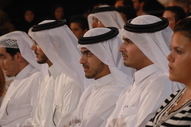 AMRE MOUSSA
AMRE MOUSSA
Hamas did not reject that. Hamas, it's a different story what happened with Hamas. Hamas was elected according to the democratic call and the accusations that have come from all four corners of the world, so the Palestinians ran elections, and Hamas won the elections. The very first minute, the same day after the announcement of Hamas winning the elections, the calls came from Europe first of all, said, 'Okay, we are going to stop any assistance to the government,' and that 'You do that, you recognise Israel.' Three conditions, and 'You do that or else,' and I was wondering and I talked to many of our colleagues, 'This is not the way to deal with a new government.' Any government according to your traditions in your Europe and in the West, give any government 100 days to organise itself, to read the basic documents, to decide what to do. But it was faced with blockade, isolation, stagnation, starvation, and then you blame them, you blame them. My thinking, and I advised many of our colleagues that let us try to invite them to talk with you and with us. The three conditions, this policy of 'You do that or else,' is unacceptable, first of all, but we told them, the government of Hamas, that you have to recognise the Arab initiative. Here comes our difference with the government of Hamas. They must have, they should have recognised the Arab initiative, and still they should do that. It's my opinion.
TIM SEBASTIAN
All right, okay. Let me just say this to you. If you do feel like coming in on this issue particularly, the Arab/Israeli conflict, then do please raise your hands. In the meantime we'll take a question please from Eman Al Emadi.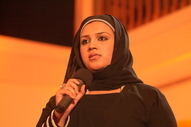 AUDIENCE Q (F)
AUDIENCE Q (F)
Good evening. What benefit has the Middle East gained from your country Egypt having relations with Israel?
AMRE MOUSSA
Well, there are always benefits from any peace agreement. Withdrawal from territories, the end of the war. What Egypt wanted at that time is to reach a comprehensive agreement and to achieve the withdrawal by Israel from all occupied territories. That is why, until now, the rest of the Arab territories are still there, Syria, Lebanon and Palestinian. We could have, and I believe there was a chance, had all the Arabs agreed at that time to take one policy and to support the withdrawal of Israel in exchange of recognition, which has become the spirit and the letter of the Arab initiative itself and that's what Egypt has done back in the 1970's, but the benefits that generally, the comprehensive benefits of the deal has not been achieved, meaning the withdrawal from all occupied territories, the establishment of the state of Palestine and the end of the Arab/Israeli conflict. That has not been achieved unfortunately, not because Egypt has signed a deal, but because of the Israeli policy and international politics and the policy of bias and double standard in favour of Israel.
TIM SEBASTIAN
Did you ask the question because you feel there were benefits from the agreement or not?
AUDIENCE Q (F)
We see some agreements with Israel but Israel always, Israel never goes with the agreement, never does what's in the agreement.
AMRE MOUSSA
I agree with you.
AUDIENCE Q (F)
So there is no benefit in dealing with Israel, they have no relations with Israel.
AMRE MOUSSA
I agree with your comment.
TIM SEBASTIAN
But you still see benefits in having relations?
AMRE MOUSSA
I see benefits from ...
TIM SEBASTIAN
Even if you're disappointed with some of the results.
AMRE MOUSSA
The whole situation is bad, and because of the Israeli policy as the colleague over there has just stated.
TIM SEBASTIAN
Right. Sara Mahmoud please, and then we'll come to some other questions from the audience.
AUDIENCE Q (F)
Thank you. My question is, if the Arab League could present a united front to Israel, would the conflict be solved once and for all?
AMRE MOUSSA
If there is one Arab position vis-à-vis Israel, then?
AUDIENCE Q (F)
If the Arab League could present a united front against Israel, would the conflict in Palestine between Israel and Palestine be solved?
AMRE MOUSSA
What we are trying to establish now is a collective Arab position in favour of a fair, a just peace, in particular for the Palestinians to achieve their rights. Whatever that takes, we will have to support it. We are in favour of a peaceful solution, a political solution, based on the acceptance of, promotion of the rights of the Palestinians to certain conditions and statehood. It's not a question of promoting wars but the policy that is being promoted by Israel now, supported by major powers, and not only one, has given Israel a kind of immunity in a very strange situation, unprecedented situation in international relations, that one country has immunity against international law. This is the thing that we have to stand firm against, and we cannot accept, we should not accept this exceptional situation that gives a country that is occupying the territories of others, that is really sowing havoc in the relations, the regional relations, and then can get away with it. This is our problem. If Israel conforms to international law, withdraws from the occupied territories, agrees with us on a peace agreement that provides for a viable state of Palestine, I think the problem will be over.
AUDIENCE Q (F)
I don't think the problem will be over because their influence has become so strong that the Palestinian flag isn't even seen on international posters that show all the flags of the world. In modern textbooks today, 2006, you don't see Palestine on the map. If you look at the Middle East and you look in the Palestinian area, all you see is Israel, you don't see Palestine labelled anywhere, and this is disturbing..
AMRE MOUSSA
This is the problem that we are trying to deal with, that the Palestinian flag has to be among the flags in any map and Palestine as a state has to figure on any map of the world, and that's what we are trying to do. Israel alone as a state at the expense of the Palestinian rights will never be a situation to be accepted by us, we will never accept it. You can accept Israel and Palestine states living next to each other with the same rights and the same viability, the same viability, and the withdrawal by Israel from the territories occupied in 1967 to the borders of 4th June. Whatever it takes, as long as it takes, we will stand firm behind that goal.
TIM SEBASTIAN
Okay. I'll take a brief question from one of those who raised their hands in the second row. One of you gentlemen raised their hand. You did, yes. You had a question on the Arab/Israeli peace process?
AUDIENCE Q (M)
Mr. Moussa, the day after the Arab initiative was adopted by the Arab League, Israel went into the West Bank and then attacked Ramallah, so isn't this a kind of alarm for the Arab League that the position should be changed, and what I mean, a new position that supports like a more violent response to Israel rather than just agreeing with what Israel suggests as a resolution to the conflict in the region?
AMRE MOUSSA
No, we don't agree with what Israel suggests as a solution, because Israel has not suggested anything as a solution for the situation in the Middle East except for the continuation of its occupation to Jerusalem and the other territories.
TIM SEBASTIAN
Well, you've just said the peace process is dead, you declared it dead.
AMRE MOUSSA
Yes, indeed, the peace process.
TIM SEBASTIAN
You handed it over to the Security Council.
AMRE MOUSSA
Absolutely.
TIM SEBASTIAN
So you washed your hands of it as well.
AMRE MOUSSA
I again reaffirm what I have said, that the peace process has died and is dead. I mean by the peace process that process which started after the Madrid Conference back in 1991 up until 2006. It has produced nothing, and there is a lot of ...
TIM SEBASTIAN
But why wash your hands of it and send it back to the Security Council?
AMRE MOUSSA
We haven't, it's not washing our hands. The Security Council represents all of us, but we are complaining against the brokership, there is no broker, there is no honest broker that would broker a deal, so it has to go back to the United Nations, and when we send it back to the United Nations, that doesn't mean that we wash our hands. In fact it is sent to the collective security system of the international community.
Arab reform
TIM SEBASTIAN
All right. Let's take a question, if we may please, from Fatima Ahmed Raja.
AUDIENCE Q (F)
I'd like to ask you, does the Arab world need political reform, and will the present Arab leaders allow the rule of democracy?
AMRE MOUSSA
Yes, indeed the Arab world needs a very viable and detailed reform, and modernisation, and democracy, the democratic system, rights of women, the human rights situation, the social and economic development in the region and in the Arab countries, yes indeed, we will have to do that and we need to do a lot as quickly as possible, as we were saying. We need reform. That's why, if you ask me, 'What is the agenda of the Arab world or the Arab League?' I would say reform, the political questions including in particular the Palestinian question, the Arab/Israeli conflict, Iraq, Lebanon, Sudan, Somalia, etc.
TIM SEBASTIAN
What's that got to do with internal reform?
AMRE MOUSSA
We are talking about internal reform. We'll talk about education or health systems or human rights or transparency.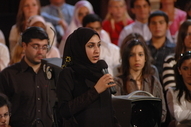 TIM SEBASTIAN
TIM SEBASTIAN
But you don't have to wait for the settling of the Palestinian issue to deal with internal questions in the rest of the Arab countries.
AMRE MOUSSA
Say it again.
TIM SEBASTIAN
You don't have to deal with the Palestinian issue first before other countries carry out reforms, do you.
AMRE MOUSSA
Nobody said so, no, no, no. There is another wrong perception. We have never said that we solve a certain question before we enter into reform, not at all. Reform has to go hand-in-hand with a solution of the regional problems.
TIM SEBASTIAN
King Abdullah said it two years ago at the World Economic Forum.
AMRE MOUSSA
King Abdullah said it again and again several times ...
TIM SEBASTIAN
You don't agree with him.
AMRE MOUSSA
... that without the solution of the Palestinian problem, there will be no peace, no stability, which would affect the efforts of reform.
TIM SEBASTIAN
And no reform.
AMRE MOUSSA
... no, no, no, which would affect the process of reform, it's not no reform.
TIM SEBASTIAN
It's being used as an excuse, isn't it?
AMRE MOUSSA
No, no, no. Not at all, and we don't accept that excuse. Reform has to go on. What does the Palestinian question or the Arab/Israel conflict have to do with the reform of a railway system, or the primary school system? It doesn't have anything to do with it.
TIM SEBASTIAN
The second part of her question was: will present Arab leaders ever allow the rule of democracy?
AMRE MOUSSA
Oh yes, and it is now part of the basic document that we are working on, which is the Tunis document on modernisation of the Arab world, and I want you to know that in the Arab League we have introduced two major reforms and already in place, already implemented. Number 1, a pan-Arab parliament, transitional one, and I'll explain. Number 2, the civil society, the Arab civil society entered the system. The two things happened as follows. Number 1, the parliament. We invited all member states, 22 countries, to elect among their parliament, from among their deputies, four deputies each, with women represented in it, to form a parliament of 88 members of Arab parliaments. I was approached, even accused, do they have parliaments in order to elect and have a pan-Arab parliament? I said yes, we have to start and in five years' time, we will be able to develop a new system that would elect Members of Parliament generally elected for that purpose, not through the local or national parliaments.
Somalia
TIM SEBASTIAN
All right. Let's take a question from the fourth row here, the lady in the fourth row.
AUDIENCE Q (F)
I have a question about Somalia.
TIM SEBASTIAN
Well, please, we need to stay on the topic that we're dealing with at the moment. We'll try and come to Somalia before the end, but we need to stay on the topic.
AMRE MOUSSA
Why don't you let her say whatever she wants to say?
TIM SEBASTIAN
Well, because we will need to stay on. You want to hear this?
AMRE MOUSSA
You need to read about democracy.
AUDIENCE Q (F)
Freedom of speech. About Somalia, you were playing a very effective role concerning the negotiations between the Islamic Court forces and the government. Why did you suddenly stop or went quiet? We can't help but feel that there has been external pressure on you to quit by some authorities whose best interest is for the conflict to occur. Is it true, have you been put under pressure to stop your efforts in that ...
AMRE MOUSSA
Stop my efforts in what?
AUDIENCE Q (F)
In negotiations between the Islamic court in Somalia and the government. They were very receptive to you and they really trusted you.
AMRE MOUSSA
Yes, yes, thank you very much. The microphone was not very clear. But ..
AUDIENCE Q (F)
Shall I repeat the question?
AMRE MOUSSA
No, put it under the niqab so I can ...
AUDIENCE Q (F)
Ha Ha .. I shall repeat it if you want.
AMRE MOUSSA
Okay, I got your question and I thank you for it. Yes, the situation in Somalia is going from bad to worse, I must say. The third round of negotiations will take place by the end of this month in Khartoum. The Union of the Courts has been invited, the government of Somalia, transitional government, has also accepted to participate. The Arab League has consented that we will not be the only convenor. We called on IGAD (Intern Governmental Authority on Development) to join us, the AU, the African Union to join, European Union to be present. We need the support of all international forces that are able to help the Somalis move on and cross this major threshold before them. The situation in spite of that, the situation was getting worse by the introduction of foreign neighbouring forces. The Somalis made a lot of mistakes. Now is the time for them to reconcile. Now is the time for them to sit and decide on the future of their country. If they don't do that, I don't think we will be able to help them any more. It is our responsibility to help them. They are an Arab country, they are an African country, they're a Muslim country, and we feel duty bound to help them and we have done that several times.
TIM SEBASTIAN
Okay, all right. Let's move on ...
AMRE MOUSSA
But the negotiations will take place on the 30th of this month in Khartoum.
TIM SEBASTIAN
Okay, thank you. Question from the third row, gentleman there. Is it on the subject of democracy?
AUDIENCE Q (M)
Yes, good evening. I just want to ask what model of democracy is the Arab League planning to adopt for our countries. Like you know there are many models of democracy: the one that is kind of applied in Europe or applied in America is going to be the general democracy, returning back to the basics, or is it one that a foreign policy is going to like force?
AMRE MOUSSA
If you ask me about my opinion, there is only one system of democracy: elections and the elected party that wins would govern and should govern a country. I don't think that there are other systems of democracy except sub-systems like is it presidential, is it parliament, things of that kind, but the basic thing is that the public, the individual, the citizens have to choose their government, this is democracy.
AUDIENCE Q (M)
But if you come to the Arab countries, every Arab country says that they have a democratic regime.
AMRE MOUSSA
The word 'democracy' is being used by everybody, but what we are trying to ...
TIM SEBASTIAN
Used or abused?
AMRE MOUSSA
Used and abused by so many, not only in the Arab world, by the way. So democracy is a system that is known. You cannot just invent another system of democracy because those who invented other systems of democracy have collapsed. You have seen the Soviet Union. It's always claimed that it is a democratic system, it is the labour, it is the citizen, etc, the individual. It was wrong. Democracy is a system that gets the citizens to select their government, and if they are dissatisfied with the performance of that government, they will drop it, and another system or another, the rotation of the political forces, this is democracy.
TIM SEBASTIAN
Okay. We'll take a question please from Khulood Al-Farsi. Microphone up there please.
AUDIENCE Q (F)
Good evening. Do you believe that democracy can be applied in the Arab world without an interference of other countries?
AMRE MOUSSA
First I like your name, Khulood. It's a very nice name. Second, yes, I believe that it could be and the Arab world is no different than any other world, any other region. What applies to Africa or to Europe or to Latin America or to Asia applies to the Arab world, and not only so.. Democracy was even practised in Egypt since the 19th century. Egypt had a parliament since the 1860's and a rotational system. It was, of course, not that perfect, but democracy as we have defined it in the answer of your colleague was there, so it is nothing new in the Middle East. Egypt was a democratic country before many European countries were democratic. The Lebanon is the same. Lebanon also followed, so democracy is not something new for us to say, 'Democracy, what is it, democracy?' No, we know what is democracy, but what affected democracy, adversely affected democracy, it was international politics that has introduced to the Arab world the policy of coup d'état and other things that has in fact defeated the process of democracy, or at least cut short their development of democracy which started last century, we could have reached other level by today. We are trying now to rebuild democracy, and all Arab governments are trying, I must say they are trying. Let us not just criticise. When it is right to criticise ourselves, we have to do it, but sometimes we have to see also that we are trying, we are trying.
TIM SEBASTIAN
Why has it taken so long?
AMRE MOUSSA
Again, I am not satisfied with the pace, except I must say, the pace itself should be much quicker, I agree.
TIM SEBASTIAN
All right, gentleman in the front row. You have a question on democracy, do you?
AUDIENCE Q (M)
Do you believe that the last presidential elections in Egypt were fair without an independent judiciary system?
AMRE MOUSSA
I believe that the people wanted the President and elected him because they wanted him to continue as President, so that is the very clear result of the elections, I must say.
Iran
TIM SEBASTIAN
All right. We have a question now on Iran from Tamara El Waylly. Can we get a microphone to the front row please?
AUDIENCE Q (F)
Thank you. What is the Arab League's position on Iran's nuclear ambition?
AMRE MOUSSA
Very short but a pointed question, I'd say. Thank you, Tamara, sit down. Now, I have a brief answer but I think that this is a very pertinent one. First of all, we in the Middle East do not need any nuclear military programme. We don't need it. We need to rid the whole region from all weapons of mass destruction including in particular nuclear weapons, so we cannot be in favour of any policy that would lead to the militarisation of nuclear power, but Iran, until this moment, has not been proven that they are manufacturing a nuclear bomb. The IAEA has not decided, has not informed us, has not formally reported that there is a military programme in Iran so far. But on the other side, I don't think that the issue is Iran. The issue is the nuclear situation in the region that involves Israel, so why should we deal with one country or one programme and just keep silent on the other, and many, what can I say, many forces in this region are being advised not to raise the question of the Israeli nuclear power. We can't. If we want to have a solution and a real and sound solution to the nuclear fight, we have to address all those powers that have the potential of producing nuclear power.
TIM SEBASTIAN
So what are you saying, it's bad for anybody to have nuclear weapons in the Middle East?
AMRE MOUSSA
Absolutely, but we cannot call it the Iranian fight, we have to call it the Middle Eastern fight because Israel ...
TIM SEBASTIAN
She was asking you about Iran.
AMRE MOUSSA
The Israeli programme has to be brought in, and without it, it would be just a biased and double-standard policy. That's the weakness in this policy.
TIM SEBASTIAN
But as far as you're concerned with Iran, you'll wait till they have one.
AMRE MOUSSA
Why should we wait till they have one? We'll have to start from now and the decision to establish a zone free from all weapons of mass destruction, a zone free from nuclear weapons is well-advised. If we agree to establish that, then it will be prohibited for Israel, for Iran, for Egypt, for Saudi Arabia, for Algeria, for any country, but to have Israel as an exception and just pick on Iran, it is unsatisfactory.
TIM SEBASTIAN
Question at the back, on Iran? Question on Iran?
AUDIENCE Q (M)
Let's just put ourselves in Israel's shoes for a second. Israel feels and in fact sees that the nations around it still are having trouble recognising it. Some don't recognise it and even those that do recognise it continue to be very hostile. Even Egypt, we cannot say that its relations are even warm with Israel, so do you not feel that we need to get to the point where Israel feels that it is being recognised or accepted by its neighbours before it can talk about eliminating the nuclear deterrent?
AMRE MOUSSA
So they will never be satisfied. They will always have this pretext or the other. The nuclear weapons have to be eliminated regardless. There are other security systems, international security system, regional security system, there can be guarantees, there can be anything, but to say, to tell me that it is a deterrent means that they have the right to use it, and this is a dangerous thing, the right to use nuclear weapons. If this is the case, then all other countries will have to take that into consideration. We have to eliminate weapons of mass destruction, eliminate the nuclear weapons, in Israel in particular and by the way, when I say in Israel, I don't mean Israel in the meaning of Israel, the adversary of the Arabs on the question of Palestine or the Arab/Israeli conflict, but I mean Israel as a country in the region, as a state existing in the region. Since it is a state existing in the region, it shouldn't be the exception to the rule. This is something that we Arabs cannot agree, cannot accept. We are uncomfortable with that. Why should they be the exception? Why should they have this deterrent and we don't, so we could be attacked without any returns? This is a very weak argument, this is a very weak argument. If the nuclear power in Israel is to work as a deterrent, is to function as a deterrent against us, then we have to call upon ourselves to be very cautious and see what to do vis-à-vis this threat, nuclear threat.
TIM SEBASTIAN
Briefly, are you happy with that?
AUDIENCE Q (M)
What I'm trying to say is, the focus should be on getting everyone, because the problem is that we're having trouble assuming that Israel would continue to exist for centuries to come. I mean, it exists but we do not recognise it. I think the focus should be on ...
AMRE MOUSSA
We have already offered them not only guaranteeing their existence, but also to normalise and recognise them, provided that they withdraw from the territories they occupy and negotiate the establishment of a Palestinian state and end those problems of Jerusalem, refugees and so on. We have already offered them that, so what else do they want? What else do they want? They have no answer and nobody has an answer. What else do they want? They want to stay as they are, with nuclear power, with a lot of money coming from abroad, the political support and the immunity they have vis-à-vis international law.
TIM SEBASTIAN
Egypt gets a lot of money from abroad, doesn't it?
AMRE MOUSSA
Not as much.
TIM SEBASTIAN
Two billion from the United States.
AMRE MOUSSA
Not that much, decreasing every year.
TIM SEBASTIAN
But still quite a lot.
AMRE MOUSSA
You have something against this?
TIM SEBASTIAN
Not at all. I'm just pointing out that it isn't just Israel who gets money from abroad.
AMRE MOUSSA
No, no, it's not only, no, Israel is a special case. You cannot compare any money getting to any Arab country with the money getting to Israel.
Personal achievements
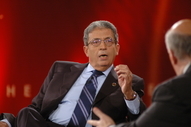 TIM SEBASTIAN
TIM SEBASTIAN
Okay. I was just evening out the score here. We'll take a question please from Assma Al Adawi.
AUDIENCE Q (F)
Good evening. I'd like to ask, as Secretary General of the Arab League, what do you feel you have achieved for the Arab nations?
AMRE MOUSSA
A very difficult question. Let me think for a minute. First, we are now working in a more co-ordinated way than before. We have addressed problems and are addressing problems in Sudan, in Somalia, in Lebanon, in Iraq in a more active way. I won't claim that we have achieved solutions, but our presence, our contribution was felt. The line of policy is being taken in a more conducive atmosphere, atmosphere conducive to agreement rather than disagreement when it comes to major political questions, and also the system itself, as I said, a parliament, the NGO's entering the system. The Arab League has been for 60 years an inter-governmental government, organisation, without any presence for the society, organisation and so on. Now they are in the non-governmental organisations. Arab civil society has entered already the Arab League, attending meetings of committees, so this thing, the parliament and the NGOs getting into a system is one of the big achievements of the Arab League recently, last year and the year before. Also the establishment of a security and peace council of the Arab League, and that would get us to this question of peace-keeping force, the Arab peace-keeping force that would certainly be resorted to at a certain time in the near future. Also the policies of social and economic development. See the programmes of family planning led by the Arab League. It is one of the major successes of the Arab League. The United Nations is supporting that programme, the Europe Union is supporting that programme. The new awareness of problems of children and problems of women, when the first report of UNDP was launched that talked about the deficiencies in the Arab society, women, knowledge and freedom, it was launched from the Arab League, so this is the new spirit that we have brought into the Arab League to get linked up with the trends and accept criticism.
TIM SEBASTIAN
So give yourself a grade out of 10, your performance.
AMRE MOUSSA
No, no, you give me that, I cannot give myself 10 out of 10.
TIM SEBASTIAN
How much would you give yourself?
AMRE MOUSSA
No, I don't think that I have done all what I wanted to do and I know that there are a lot of shortages, a lot of things that I should have done, a lot of things that I must do. I am still hopeful that I can do things that at the end of this tenure, I could get a fine grade.
TIM SEBASTIAN
All right. Manzoor Ahmed has one final and very brief question.
AUDIENCE Q (M)
Mr. Moussa, you're a very popular person in your country Egypt. Do you have any future ambitions of running for president?
AMRE MOUSSA
My ambitions now are to do something good for the region and for the Arab world, and I will continue to do whatever I can for the remaining period of my tenure of office. It is a difficult job but it is very rewarding when I see that we have succeeded, not only in getting the Palestinian state but also with rights of women, social and economic development, more transparency and democracy.
TIM SEBASTIAN
Was that a yes or a no?
AMRE MOUSSA
As you like.
TIM SEBASTIAN
Dangerous topic.
AMRE MOUSSA
As we say in Egypt … Ili tihsibu (as you like)
TIM SEBASTIAN
We've come to the end of our time. Mr. Moussa, thank you very much for being with us this afternoon.
AMRE MOUSSA
Thank you, thank you very much.
TIM SEBASTIAN
And thank you very much to our audience for being here. The Doha Debates will be back next month. We'll be broadcasting from the Kennedy School of Government at Harvard University, a very special event, so do join us then. For now, from the Doha Debates team, thanks very much for being with us. Good night.
AMRE MOUSSA
Thank you.
Watch online

